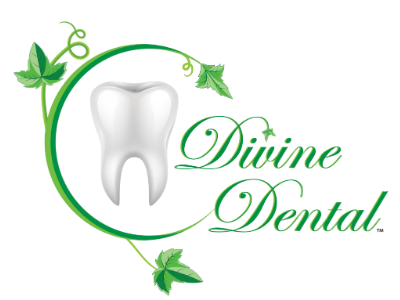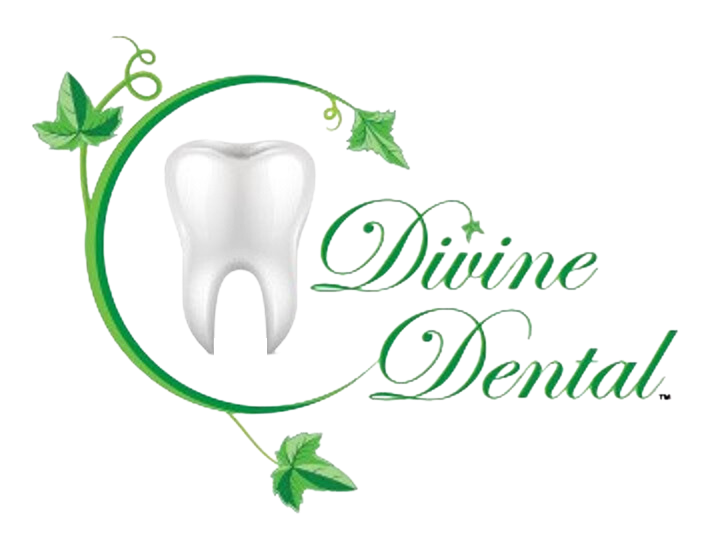The Link Between Oral Health and Overall Wellness: Exploring the Integral Relationship
The link between oral health and overall wellness has been a subject of increasing interest over the past several years. It is becoming widely acknowledged that the state of one’s mouth can provide significant clues about their general health. The mouth is a gateway to the body, and problems here can have far-reaching implications. Diseases and conditions such as periodontitis , for instance, are associated with other health issues, including heart diseases, diabetes, and respiratory conditions.

Understanding the intricate relationship between oral health and overall wellness is key to adopting a holistic health approach. Chronic inflammatory processes, which can be a consequence of poor oral hygiene, may play a role in the development and progression of many systemic diseases. Consequently, diligent oral care can be considered not only a commitment to maintaining healthy teeth and gums but also a crucial step toward overall health optimization.
Key Takeaways
- Oral health is closely linked to overall wellness, acting as an indicator of general health issues.
- Inflammation from poor oral health can contribute to systemic diseases, emphasizing the need for good oral hygiene.
- A holistic health approach acknowledges the importance of oral health in maintaining overall bodily wellness.
The Oral-Systemic Health Connection
The integration of oral health and overall wellness is evident, as numerous studies show a link between oral conditions like periodontal disease and systemic diseases including cardiovascular disease and diabetes mellitus.
Impact of Oral Health on Systemic Diseases
Chronic oral infections, particularly periodontal disease , can be a contributing factor to systemic health issues due to the sustained inflammation they cause. This inflammation can enter the bloodstream, potentially leading to:
- Cardiovascular Disease : Bacterial components from periodontal disease are associated with arterial plaque and can contribute to atherosclerosis.
- Diabetes Mellitus : Periodontal inflammation can complicate glycemic control, exacerbating diabetes symptoms.
Recent findings suggest that treating oral conditions can help in managing these systemic conditions, indicating a strong oral-systemic connection .
Understanding the Oral Microbiome
The oral cavity is home to a complex oral microbiome , consisting of hundreds of bacterial species. Maintaining a balanced microbiome is crucial for oral and systemic health.
- Disruptions in this microbiome can lead to an increase in harmful bacteria, resulting in bacterial infections and an immune response that includes inflammation.
- A healthy oral microbiome, on the other hand, can prevent harmful bacteria from entering the body’s system and decrease the likelihood of inflammation -related diseases.
Inflammatory Processes and Oral Health

Inflammation is a key factor in oral health issues such as periodontitis and can have far-reaching effects on systemic health, including heart disease and rheumatoid arthritis.
Periodontitis and Systemic Inflammation
Periodontitis is a serious gum disease that leads to inflammation of the soft tissue and bone support. If untreated, this chronic inflammatory condition not only leads to tooth loss, but it can also enter the bloodstream and promote systemic inflammation . Studies show a correlation between periodontitis and elevated C-reactive protein (CRP), a marker of inflammation often linked with an increased risk for cardiovascular diseases.
- Association with Chronic Diseases:
- Heart Disease: The inflammatory response from periodontitis is implicated in the development of cardiovascular conditions.
- Rheumatoid Arthritis: Similarities in inflammatory mechanisms may connect periodontitis to rheumatoid arthritis, reflecting a bidirectional relationship.
Gum Disease and Its Wider Health Impacts
Gum disease is not limited to affecting oral cavity health; it has been connected to broader health issues. The bacteria causing inflammation in the gums can travel through the body, influencing other areas and potentially exacerbating or initiating disease processes.
- Physical Effects: Infections and inflammation in the gums can lead to systemic spread, which may contribute to cardiovascular and other chronic diseases.
- Chronic Disease Links:
- Cardiovascular Health: Research suggests a link between gum disease and cardiovascular diseases, possibly due to shared risk factors and inflammatory pathways.
- Rheumatoid Arthritis: Gum disease may impact the severity and even onset of rheumatoid arthritis, a chronic inflammatory disorder.
Through oral inflammation, the mouth’s condition is a window into one’s systemic health and reflects the importance of maintaining oral hygiene for overall wellness.
Preventive Oral Health Practices
Incorporating daily dental care routines and understanding the impact of diet on oral health are critical in preventing dental diseases.
Daily Oral Hygiene and Regular Check-Ups
Regular oral hygiene is fundamental to maintaining oral health. Brushing twice a day with fluoride toothpaste and flossing daily are pivotal in removing plaque and preventing dental decay and gum disease. It is recommended for individuals to replace their toothbrush every three to four months or sooner if the bristles become frayed.
- Dental Check-Ups: Individuals should schedule regular dental check-ups, ideally twice a year. During these visits, professionals conduct thorough cleanings to remove tartar that cannot be brushed or flossed away.
Link Between Diet, Nutrition, and Oral Wellness
Diet directly affects oral health. Sugary foods and drinks contribute to tooth decay, while acidic foods can erode tooth enamel. Consuming a balanced diet rich in vitamins and minerals supports healthy gums and teeth.
| Nutrients | Benefits | Sources |
|---|---|---|
| Calcium | Strengthens teeth | Dairy, leafy greens |
| Vitamin D | Promotes calcium absorption | Sunlight, fish, eggs |
| Phosphorus | Protects enamel | Meat, beans |
Choosing foods and beverages wisely is part of good oral hygiene practices. Drinking plenty of water helps clean the mouth and hydrates the body, further preventing dental problems.
Oral Health and Disease Risk Factors
Oral health is profoundly interconnected with overall health, and certain behaviors and conditions can elevate the risk of disease. Poor oral hygiene may facilitate infections that can spread to other parts of the body, and specific groups, like those that are pregnant or aging, may face additional risks.
Tobacco, Alcohol, and Other Lifestyle Choices
Tobacco Use:
- Risk Increase: Consistent use of tobacco products is a substantial risk factor for oral diseases, including gum disease and oral cancer.
- Reversibility: Quitting tobacco can significantly reduce these risks.
Alcohol Consumption:
- Moderation: Excessive alcohol intake is linked to oral cancer.
- Synergistic Effect with Tobacco: The combination of alcohol and tobacco significantly heightens the chance of developing oral diseases.
Diet and Oral Hygiene:
- Sugary Foods and Beverages: High consumption promotes tooth decay and gum disease.
- Dental Care Routine : Regular brushing and flossing lower the risk of oral health problems.
Special Populations: Pregnancy, Aging, and Chronic Conditions
Pregnancy:
- Gingivitis Prevalence: Hormonal changes elevate the risk of gingivitis, which can affect the health of the pregnancy.
- Dental Visits : Pregnant women are advised to maintain regular dental check-ups for early detection and management.
Aging:
- Natural Wear: Teeth and oral tissues undergo significant changes with age, potentially resulting in complex oral health issues.
- Dry Mouth: Common in older adults, often due to medication, reducing saliva flow and increasing decay risk.
Chronic Conditions:
- Diabetes: Individuals with diabetes are at a heightened risk for gum disease, which can also affect blood sugar control.
- HIV/AIDS: Comes with an increased incidence of oral problems, like mucosal lesions, due to a weakened immune system.
It is important for everyone to address lifestyle choices and understand the additional care required for those within specific populations to maintain optimal oral and overall health.
Holistic Approach to Dental and Overall Health
Recognizing the interdependence of oral health and general wellness, a holistic approach to dental and overall health emphasizes the importance of integrating dental care into broader health care practices.
Collaboration Between Medical and Dental Healthcare Providers
In a holistic view of health, collaboration across disciplines is vital. Medical and dental healthcare providers work in concert to offer comprehensive care. This integrated approach facilitates the sharing of health records and treatment plans, enhancing the patient’s overall care experience.
- Advantages of Interprofessional Collaboration
:
- Improved health outcomes through a united treatment strategy
- Early detection of systemic diseases manifesting in oral symptoms
- Enhanced patient education regarding the links between oral and overall health
Communication among healthcare providers is streamlined through the use of shared health informatics systems. These systems allow for real-time updates and contribute to the efficacy of preventative care strategies.
Educational Initiatives and Public Health Policy
Education plays a pivotal role in a holistic approach to health. It arms the public with the necessary knowledge to make informed decisions regarding their dental and overall health.
- Public Health Policy : Policies advocating for regular dental screenings as part of routine health check-ups are vital. These screenings can lead to early interventions, significantly improving health outcomes.
- Goals of Educational Initiatives
:
- To inform individuals about the impact of oral health on systemic conditions.
- To promote daily preventative care routines that contribute to overall wellness.
By focusing on public health educational initiatives, a clear and relevant message about the importance of maintaining dental health as a component of holistic well-being is conveyed to the community.
Frequently Asked Questions
This section addresses common inquiries about the connection between oral health and overall wellness, reflecting the intricate link between the mouth and the body.
How does oral health impact systemic diseases?
Oral health can significantly affect systemic diseases. Research indicates that inflammation from periodontal disease is linked to conditions such as diabetes, making management of oral infections critical for overall health.
Can poor oral hygiene contribute to cardiovascular conditions?
Poor oral hygiene is associated with an increased risk of heart disease. Bacteria from inflamed gums can enter the bloodstream, potentially leading to arterial plaque and cardiovascular issues.
What role does nutrition play in maintaining oral health?
Nutrition plays a pivotal role in maintaining oral health. A balanced diet rich in vitamins and minerals strengthens teeth and gums, while reducing the intake of sugary and acidic foods minimizes the risk of tooth decay and periodontal disease.
How are dental health issues linked to mental well-being?
Dental health issues are closely linked to mental well-being. Oral pain and aesthetic concerns can lead to stress, anxiety, and a loss of self-confidence, highlighting the importance of oral care in mental health.
What preventative measures can ensure good oral and overall health?
Preventative measures such as regular dental check-ups, proper brushing and flossing, and avoiding tobacco can ensure good oral health, which is vital for maintaining overall wellness.
How can effective mouth care in patients prevent other health problems?
Effective mouth care in patients can prevent health problems by reducing the risk of oral infections that may worsen or trigger systemic issues, emphasizing the need for diligent oral hygiene and professional care.…



